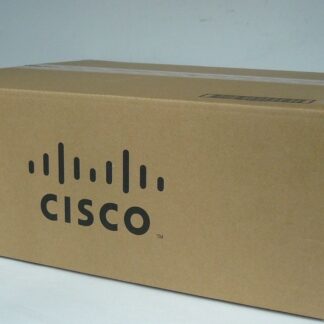Telephony
4 Port
8 Port
DSP Module
Expansion
IP Phone
Phone
Telepresence
Voice & Fax
Voice Interface
Voice WAN Card
VoIP Phone
Telephony technology deals with the interaction between two or parties that are physically distant. The interaction often involves electronic voice communication, videoconferencing, text messages, and faxing. Telephony has now evolved into the Internet sphere, allowing users to communicate via IP (Internet Protocol) networks. This is done at lower costs than traditional telephonic systems.
IP telephonic systems can be found on a host of computing devices such as PCs, desktop computers, smartphones, and tablets.
Users need to invest in reliable, scalable, and robust telephony equipment to help meet enterprise needs. Every business needs to constantly communicate with employees, suppliers, and customers for improved business performance. There are a series of smart features of available telephony equipment that users can benefit from. These include real-time telephone calls, video conferencing, privacy protection, faxing, instant messaging, and more.
These high-end technologies are ideal for several organizations that require an improved approach to their telephony
networking. That way, they can be sure of maximizing business mobility and continuity.
Several types of office phone systems are available to be employed by users. These phone systems run on different technology platforms. They can make use of VoIP, PBX, or analog. A user’s telephone system choice will depend on the extensions, business applications, wiring, and budget. There are three major types that users can choose from, and they include KSU, PBX, and VoIP.
KSU (Key System Unit)
The Key System Unit is a multi-line telephony system that performs under a central control device. Present key system units now offer users with advanced features for businesses with up to 75 employees. These types of systems are often known as hybrid telephone systems. They incorporate the features of both key and PBX systems, offering improved efficiency. A great advantage of key systems is that the users can expand them as the business expands, and more employees are available.
PBX (Private Branch Exchange)
Larger businesses employ these types of telephony systems. They can accommodate well over 75 employees, and they have several advanced features standard them. These systems offer increased flexibility, which allows them to be used for complex operations in business environments. Their flexibility and customizable features ensure that they offer good value for money.
VoIP (Voice over IP)
This type is the latest telephonic system that allows businesses to connect in different locations. These locations can be within a locale or other places in the world.
VoIP telephony equipment works by sending voice calls via the internet without the need for traditional telephones.
VoIP technology enables businesses to communicate with remote workers and branch offices. That is, users can place and receive calls anywhere in the world with the same number. Traditional VoIP technology allows companies to own and manage the telephony equipment themselves. On the other hand, the hosted VoIP system is controlled by a service provider.
Cloud-based telephony equipment manages and maintains a company’s communication, relieving the IT department of such duties. That way, it frees up time and allows employees to focus on other important tasks.
Showing 1–12 of 652 results
-

PVDM2-16 Cisco 16 Channel Packet Voice/Fax DSP Module | Refurbished
$10.00 -

PVDM2-16 Cisco Module 16 Channel Packet Voice/Fax DSP | New Factory Sealed
Request for quote -

PVDM2-16= Cisco 16 Channel Packet Voice/Fax DSP Module | Refurbished
$10.00 -

PVDM2-16= Cisco Module 16 Channel Packet Voice/Fax DSP | New Factory Sealed
Request for quote -

PVDM2-32 Cisco Module Systems 32 Channel Packet Fax/Voice PVDM DSP | New Factory Sealed
Request for quote -

PVDM2-32 Cisco Systems 32 Channel Packet Fax/Voice PVDM DSP Module | Refurbished
$12.00 -

PVDM2-48 Cisco 48 Channel Packet Voice/Fax DSP Module | Refurbished
$7.00 -

PVDM2-48 Cisco Module 48 Channel Packet Voice/Fax DSP | New Factory Sealed
Request for quote -

PVDM2-64 Cisco 64 Channel DSP Fax Module | Refurbished
Request for quote -

PVDM2-64= Cisco 64 Channel DSP Fax Module | Refurbished
$9.00 -

SPA301-G3 Cisco AC Adapter | Refurbished
Request for quote -

SPA303-G1 Cisco 2 Ports IP Phone Ethernet Cable Wall Mountable | Refurbished
Request for quote
Showing 1–12 of 652 results


